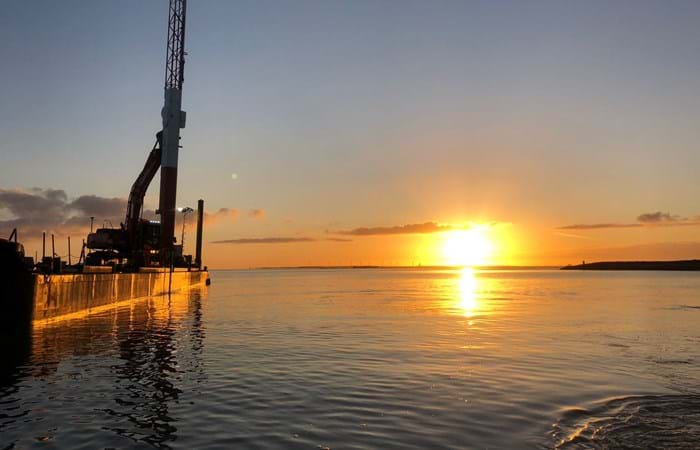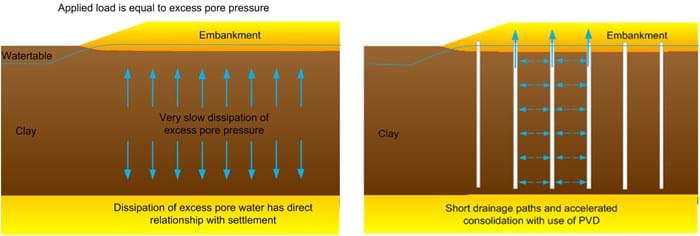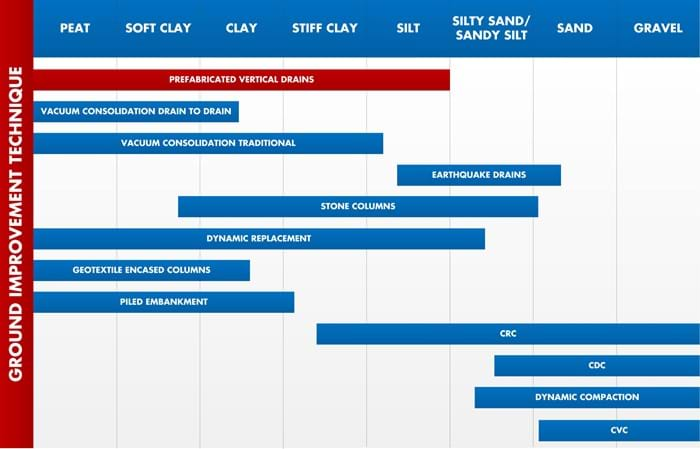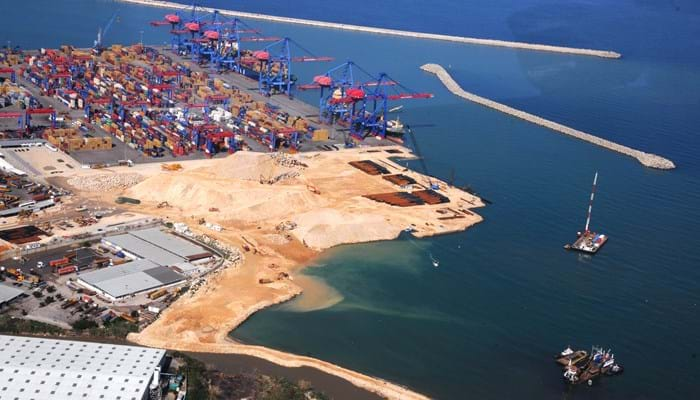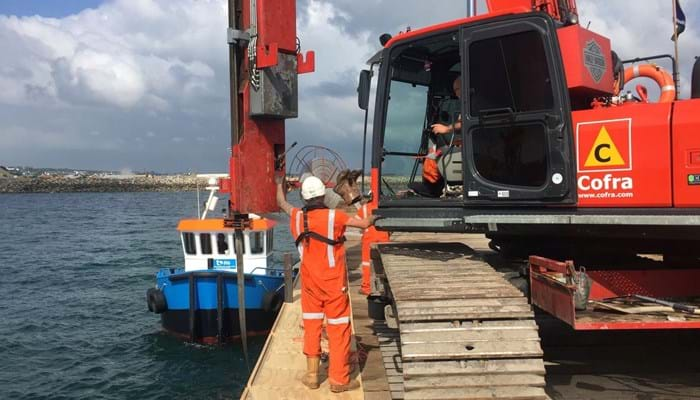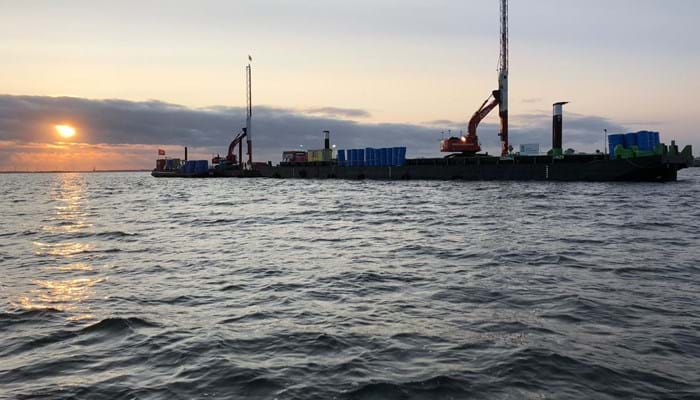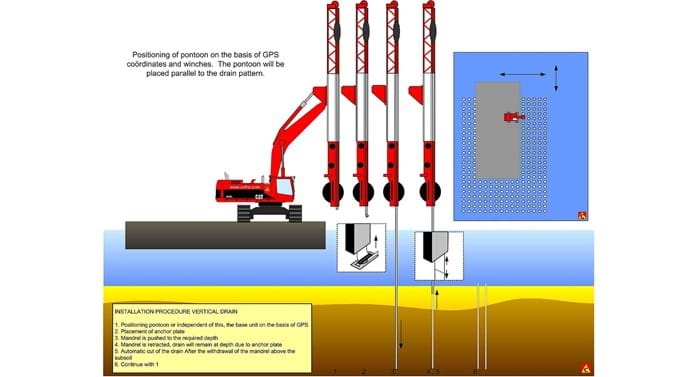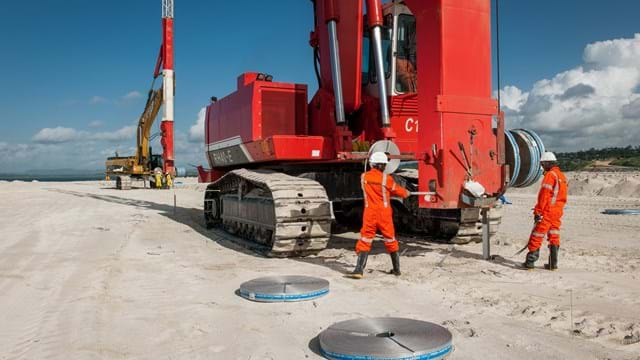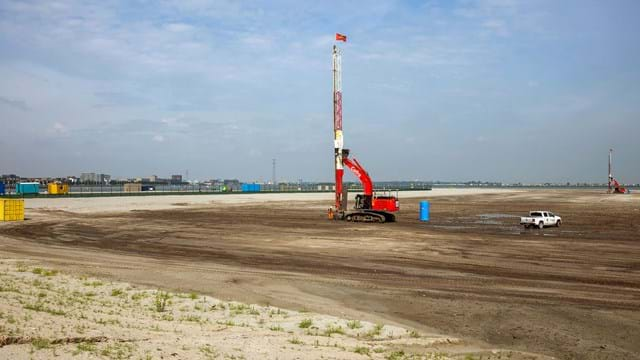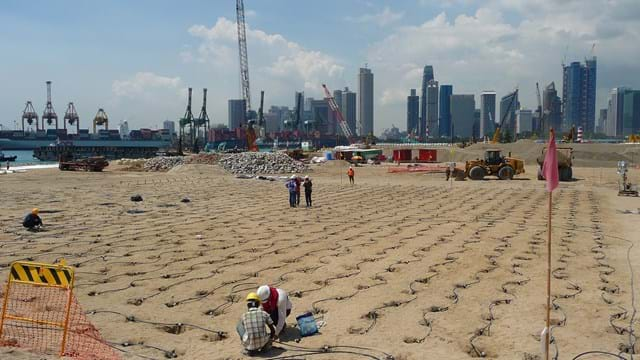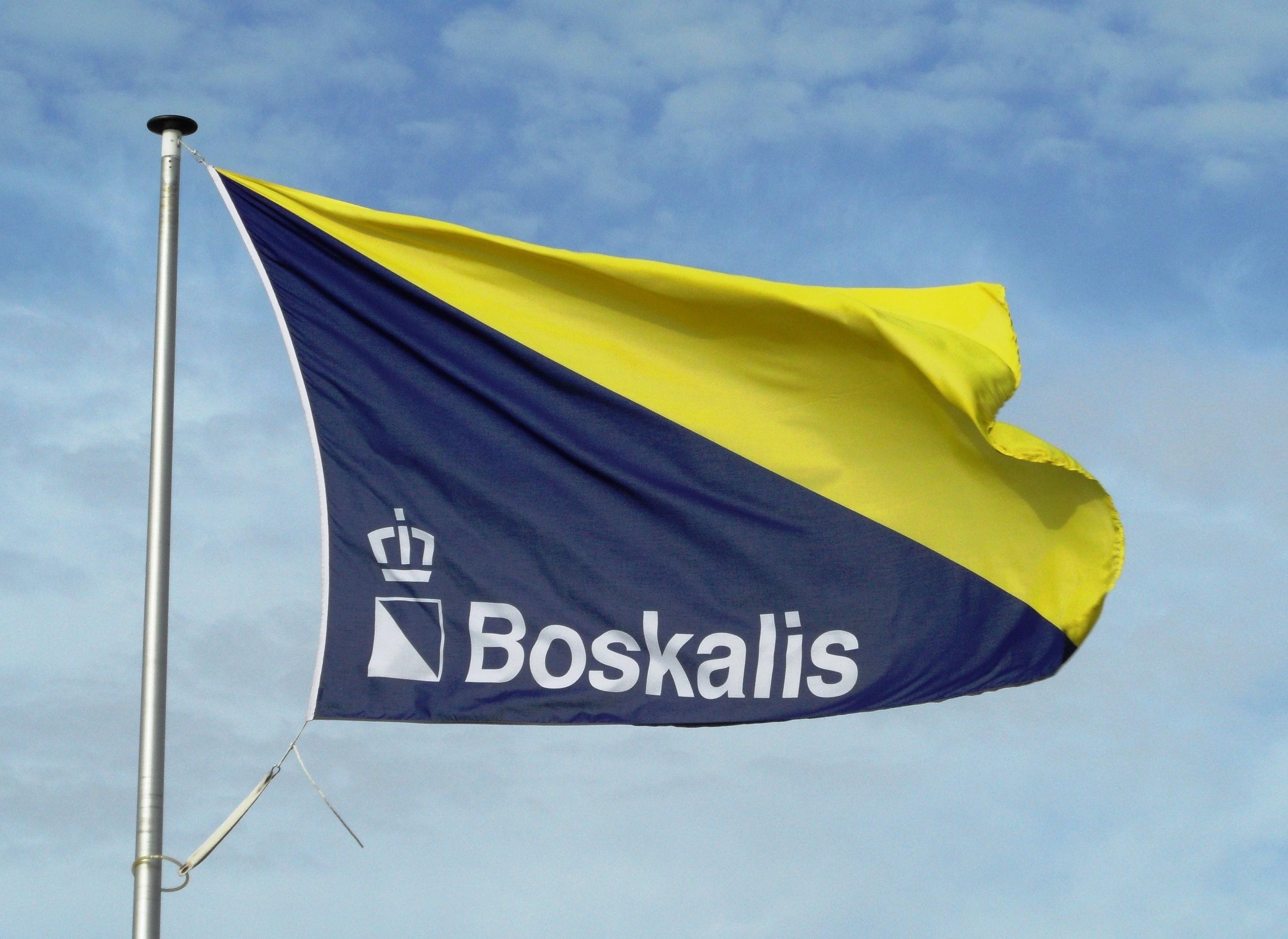Since the development of the synthetic prefabricated vertical drain (PVD) in the late 1970ties, Cofra is worldwide one of the leading contractors in this segment. Cofra has installation rigs available for each soil type, varying from very soft soils to very stiff intermediate layers that can be deployed on pontoons. Our installation rigs are designed for containerized transport and thus easy to ship to any project location in the world. Being part of maritime service provider Boskalis gives us a unique access to resources and floating equipment to help execute your project
What it is
This techniques involves the installation of artificial drainage paths or vertical drains from a barge into soft compressible soils that are located off shore. The prefabricated vertical drain (PVD) used by Cofra are specially designed to work effectively under high settlements (i.e. under buckled or kinked conditions). Note that the vertical drains also go under vertical band drains, vertical strip drains or wick drains depending on the region you are in.
How it works
Highly permeable soils like sand can adjust rapidly to loads and the corresponding compression / reduction in voids due to the ability to easily drain the excess porewater. Low permeable soils like clay and peat do not have this ability and show a delayed compression with the dissipation of the excess pore water. This process of dissipation of excess pore pressures, also known as consolidation, can take up to years depending on the thickness of the deposit. Vertical drains or also known as wick drains are used to shorten the dissipation path of the excess pore water and to accelerate the consolidation process to a few months or even weeks when the PVD is placed at close center to center distances.
Why it's used
Vertical drains in an offshore application are mainly used to govern the stability of the embankment to be constructed. When off shore vertical drain installation is used the following conditions most of time apply:
- The strength of the subsoil is too low to support the thickness of the embankment under the site specific design slopes.
- PVD is required underneath the slopes of the embankment
- The fill material is too course to allow for installation of PVD (rock fill)
The drains themselves are used to accelerate the consolidation and reduce the consolidation period such that it fits within regular construction schedules and a faster lifting schedule of an embankment can be used. The strength of the subsoil has a relation with the degree of consolidation (adjustment of the subsoil to the placed load).
Application area
Off-shore vertical drains are used in the following markets:
Infrastructure: The drains are for example used for infilled harbor for the construction of for roads, railways, the preloading of runways and aprons for airports.
Dredging and land reclamation: Drains are used when reclamations are constructed on soft deposits. When they are required they will be placed after a thin first lift of sand.
Mining: Drains are used in Tailing ponds to accelerate consolidation. As the tailing ponds are often not accessible the drains are installed from an off shore modus
Construction: Drains are for example used in the area sensitive for instability for infilled docks for the construction of for example houses, warehouses and tank farms
Flood protection: Drains are used in the flood protection market to increase the outwards stability of dikes and embankments during widening projects when there is no room for land based installation.
How it is installed
The prefabricated vertical drains are installed using the wide range of stitchers, developed in-house by Cofra. The principal of installation of the vertical drainage is based on the insertion of a steel mandrel from a pontoon into the ground with a drain inside. The drain extension at the bottom of the mandrel can be connected to an anchor plate or stick to help the anchoring of the drain. Automatic anchoring systems are also available keeping the drain at depth during retraction of the mandrel. After the mandrel has reached the seabed, the drain is cut. Afterwards the mandrel is further retracted to the surface and a new anchor plate is connected to the bottom of the next drain. The mandrel is pushed into and retracted from the ground through a system of cylinders and winches, which in turn are propelled by the excavators’ hydraulic system
Land based vertical drain installation
Find out more details about our land based installation capabilities on this page
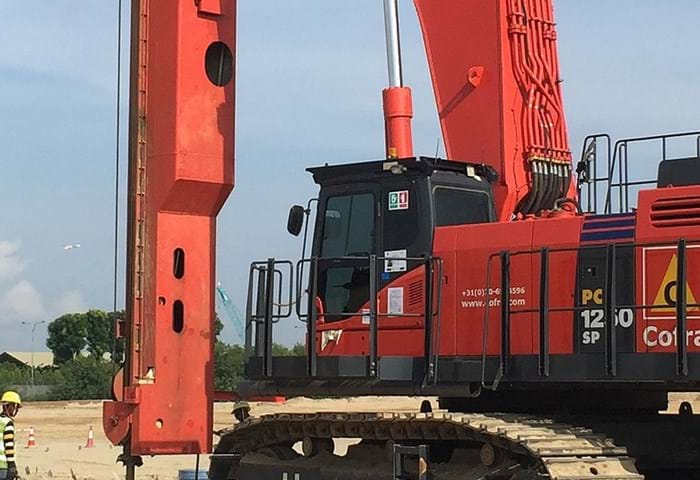
Contact us (regional contacts on our contact page)
Business development Cofra
For new opportunities or partnering.

Estimation Department Cofra
If you require a quotation or need a budget for your project for any country in world outside our home markets.

Technical Sales Cofra
For design questions or technical information.

